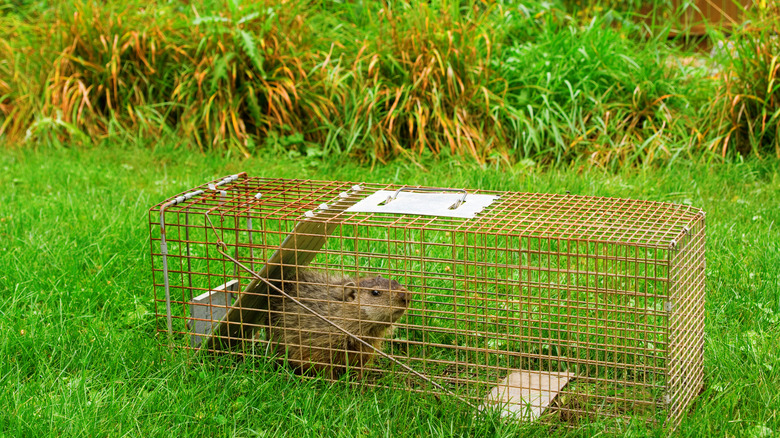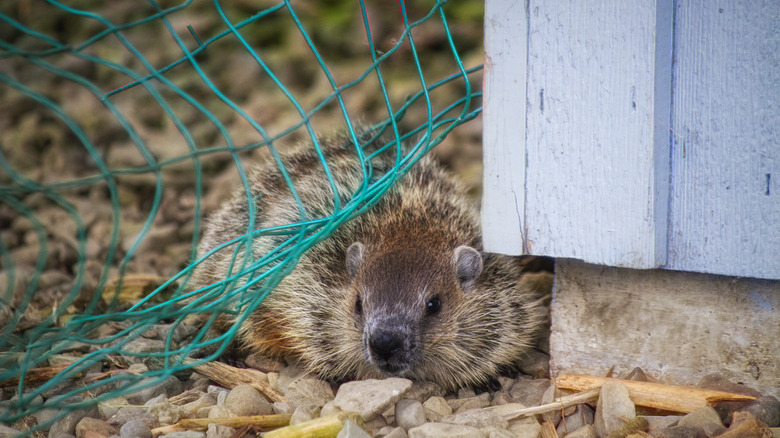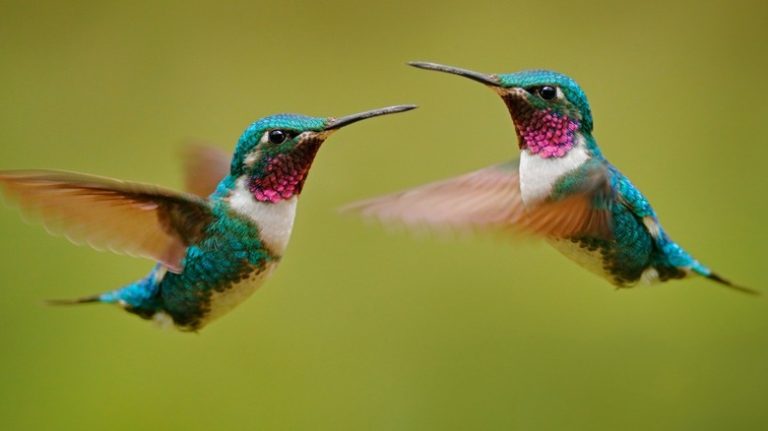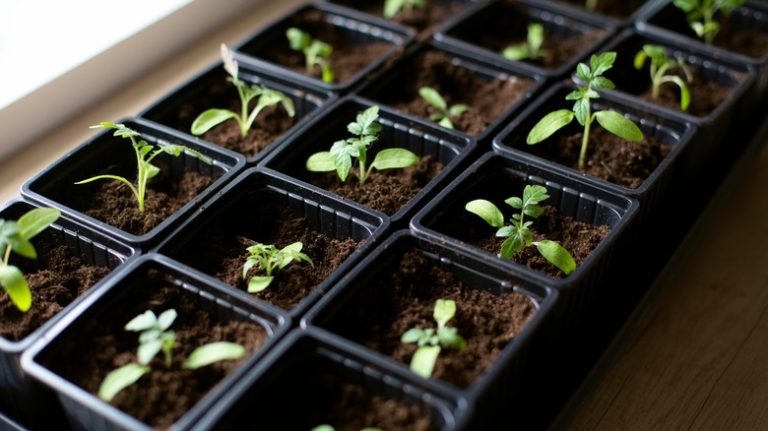Growing a cucumber plant in your garden requires careful management of soil conditions, water, and the right amount of sunlight. While you may be concerned about insects trying to chomp at the leaves of these plants, larger pests, including groundhogs enjoy a fresh, crisp cucumber. These pests, along with squirrels, deer, and rabbits, may find your cucumber plants to make the perfect meal, but there are several steps you can take to protect them. Using strong scents and the right type of garden protectants may be all that’s necessary to minimize the destruction these critters cause in your garden.
Groundhogs, which hibernate all winter long, eat as much as a full pound of vegetation at a time, which, based on their size, is the equivalent of a person eating 15 pounds in a single meal, according to The Forest Preserve District of Will County, Illinois. As vegetarians, that is a lot of food to consume, and cucumbers are a substantial option. During the summer and fall months, they are likely to eat any type of vegetation, fruits, and bark from trees to support their needs, which is what makes keeping them out of your garden both necessary and difficult. With up to a 14-year lifespan, it’s often best to try to trap and remove groundhogs to relocate them to another area, which will give you the best opportunity to minimize their destruction, but there are a few other strategies to consider as well.
Prevent groundhogs from getting near the cucumber plants

As noted, trapping and removing groundhogs that are living in or near your garden is the best way to prevent future damage to cucumber plants. They tend to live along the edges of forests or wooded areas but will burrow into the ground and have rather elaborate tunnel systems. That allows them to hide well. They can also climb, allowing them to get into trees and over fences. If you know where they are, trapping them will allow you to remove them.
The next step is to work to keep them out of your garden with a fence. Choose one that’s made of chicken wire that has openings no larger than 3 inches by 3 inches since they can slip through openings that are bigger than this. Place this along the entire perimeter of the garden, or, if you are growing cucumbers in containers, place mesh wiring around the exterior of the plants until you can get the pest to move on. The fence needs to be about 4 feet high and be secured at both the top and the bottom to keep it from tipping over. For a more aggressive process, consider an electric fence surrounding your garden. Usually, just a single line may be enough, but this also causes a significant risk to your pets and other wildlife in the area. Be sure you choose solutions designed for pest management that will deter but not harm the animals.
Distract and deter the groundhogs

You can cover up the groundhog’s tunnel systems by placing wood near the entrance, and you can completely remove the habitat they are living in, such as a wooded area. But that’s a lot of work and the groundhogs may remain — unless they are sufficiently scared and decide to move to another area.
If you don’t want to tear down their habitat but still want to protect your cucumbers, you can use scare devices. Just letting your dog out may be enough to discourage them from coming too close to your home. Groundhogs are noted for being very skittish creatures who want nothing to do with people or other animals. You can also consider adding a noise-making device near the cucumbers. A shiny light that comes on when they come near, a windchime that reflects sunlight, and balloons are also great distractions. Just being present in your garden can help, too, since these animals are most active during the day.
Some strong scents may deter groundhogs. You can use kitchen ingredients, including garlic and pepper, to keep groundhogs away. Lavender, lemongrass, rosemary, and other essential oils can be grown near cucumber plants as a way to repel groundhogs from the area naturally. Groundhogs don’t like the scent of humans, so hair clippings can also work to deter them. You may also try placing Epsom salts around the plants themselves as well as near the burrow system.



